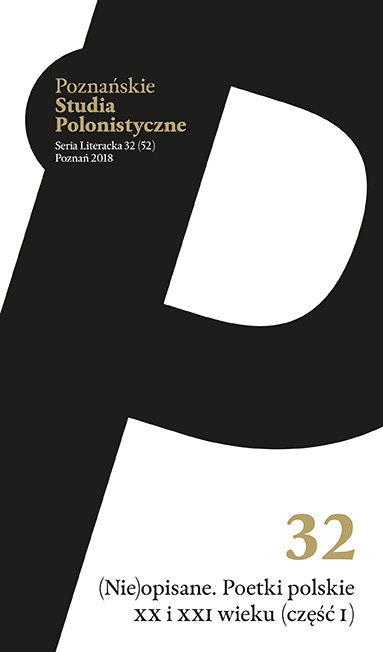Zofia Wojnarowska. Poetka dla dzieci – poetka miłości – poetka rewolucji
Zofia Wojnarowska. Children’s poetess – a poetess of love – a poetess of revolution
Author(s): Agata ZawiszewskaSubject(s): Cultural history, Poetry, Recent History (1900 till today), Polish Literature, 19th Century
Published by: Wydawnictwo Poznańskie Studia Polonistyczne
Keywords: modernism; Polish poetry; Zofia Wojnarowska’s lyric;
Summary/Abstract: The article discusses Zofia Wojnarowska’s (1881-1967) biography and poetry which were representative of the life path and artistic career of many other active Polish poetesses at the turn of the 19th century. The output of Wojnarowska, who made her debut in the period of Young Poland and reached her artistic maturity in the interwar period, expresses a typical situation of an artist–epigone whose mediocre talent looks for its own expression and place in the literary Parnassus in the time of, important for the national community, political, economic and cultural changes. Political facts like the country’s occupation, World War I and a difficult process of the restoration of an independent country influenced the judgments of Polish critics who rarely applied esthetic criteria to the evaluation of poetesses’, including Wojnarowska’s, output and instead appreciated their subordination to the following functions: didactic (in children’s poetry), expressive (in love poetry) and ideological (in the poetry of proletarian revolution). The situation in which systemic and individual factors like the emancipation of women, the crystallization of literary professions literary critics’ lenient approach to the artistic output of women and the ease of writing overlapped, the need of success and ideological engagement, on the one hand, made it difficult for women writers to improve their own work, to function in higher mainstream and to play the roles of culture creators and, on the other hand, made it easier for them to function in the popular mainstream and play a role of literary craftsmen.
Journal: Poznańskie Studia Polonistyczne. Seria Literacka
- Issue Year: 2018
- Issue No: 32
- Page Range: 57-74
- Page Count: 18
- Language: Polish

